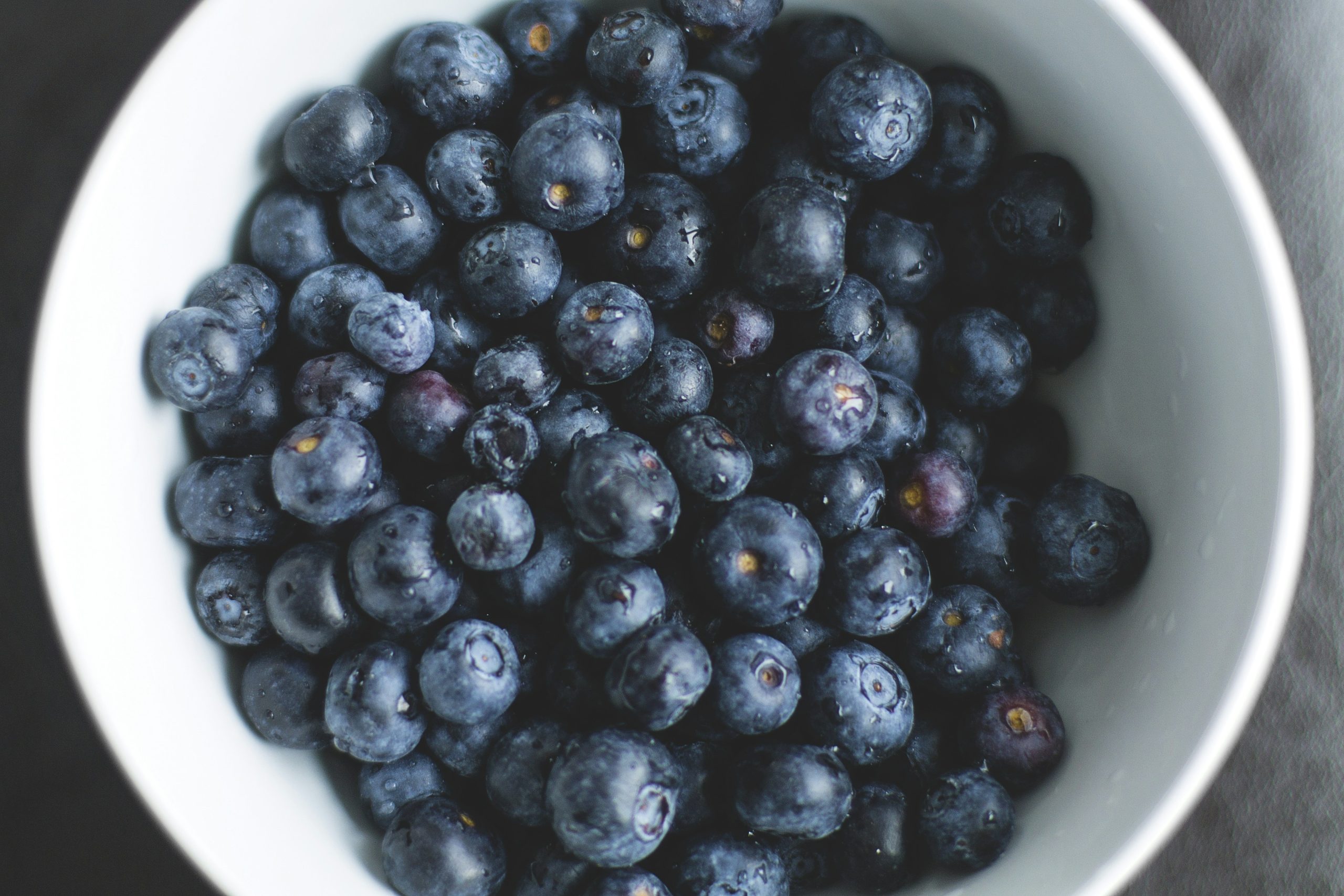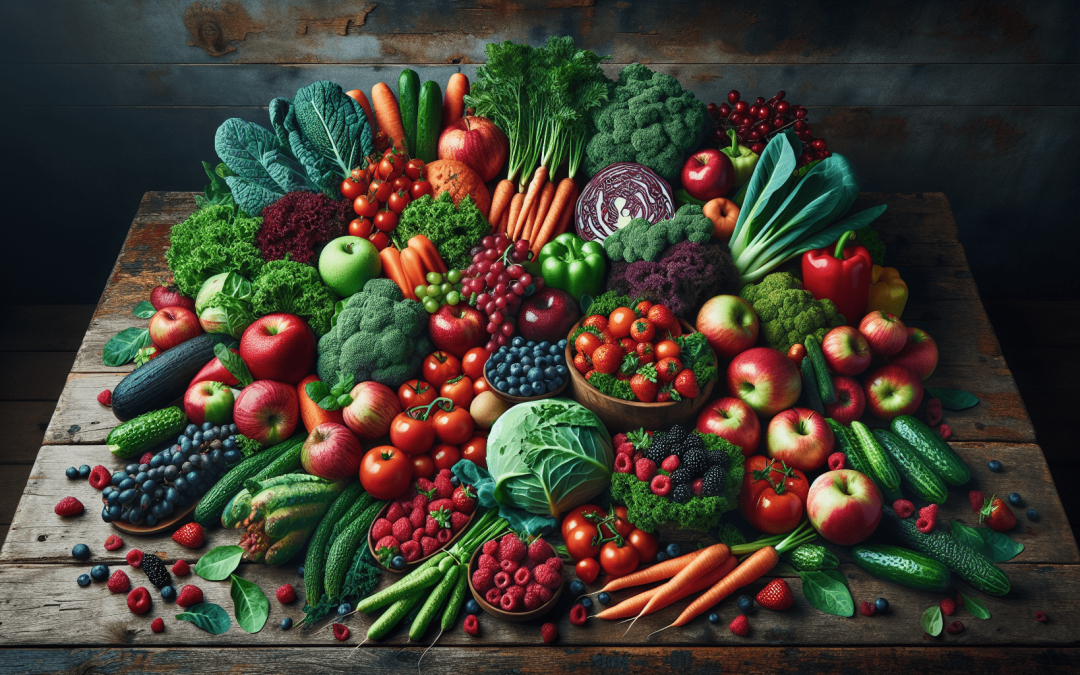Have you ever wondered about the benefits of organic nutrition? In this ultimate guide, you will discover everything you need to know about organic nutrition and how it can positively impact your health and overall well-being. Let’s delve into the world of organic nutrition together!
What is Organic Nutrition?
Organic nutrition refers to consuming food and beverages that are grown and produced without the use of synthetic fertilizers, pesticides, genetically modified organisms (GMOs), or other harmful chemicals. Organic farming practices focus on sustainability and environmental conservation, making it a healthier and more eco-friendly choice for both consumers and the planet.
Choosing Organic Foods
When shopping for organic foods, look for the USDA Organic seal on the packaging. This certification ensures that the product meets strict organic standards and regulations. Opt for a variety of organic fruits, vegetables, whole grains, legumes, nuts, seeds, dairy products, and meats to create a well-rounded and balanced diet.
Benefits of Organic Nutrition
Organic nutrition offers a wide range of benefits that can positively impact your health in numerous ways. From reducing exposure to harmful chemicals to enhancing the nutritional quality of food, here are some of the key advantages of incorporating organic foods into your diet.
Reduced Exposure to Pesticides
Conventional farming methods often involve the use of synthetic pesticides and herbicides to control pests and weeds. These chemicals can leave residues on the surface of fruits and vegetables, which can be harmful when consumed. By choosing organic produce, you can significantly reduce your exposure to potentially toxic pesticides and protect your health.
Higher Nutritional Value
Studies have shown that organic fruits and vegetables contain higher levels of essential nutrients, such as vitamins, minerals, and antioxidants, compared to conventionally grown produce. Organic farming practices prioritize soil health and biodiversity, resulting in more nutrient-dense and flavorful crops that can support your overall well-being.
Better Taste and Quality
Many people prefer the taste of organic foods due to their freshness, purity, and superior quality. Organic fruits and vegetables are often harvested at peak ripeness, which enhances their flavor and texture. Additionally, organic meats and dairy products are free from antibiotics and hormones, making them a safer and healthier choice for consumers.
Environmental Sustainability
Organic farming promotes sustainable agriculture practices that help preserve natural resources, protect wildlife habitats, and reduce pollution. By supporting organic agriculture, you are contributing to a healthier and more environmentally friendly food system that benefits both present and future generations.
Organic Nutrition Myths Debunked
There are several common misconceptions and myths surrounding organic nutrition that may deter people from choosing organic foods. Let’s debunk some of these myths and set the record straight on the true benefits of organic nutrition.
Organic Foods are Expensive
While it’s true that organic foods can be more expensive than conventionally grown products, the long-term health benefits and environmental advantages of organic nutrition outweigh the initial cost. Plus, you can save money by shopping for organic foods at local farmers’ markets, co-ops, and online retailers that offer competitive prices and discounts.
Organic Foods are Not More Nutritious
Contrary to popular belief, organic foods are indeed more nutritious and have been shown to contain higher levels of vitamins, minerals, and antioxidants compared to non-organic foods. Organic farming practices focus on enhancing soil health and biodiversity, which results in crops that are more nutrient-dense and beneficial for your health.
Organic Foods Spoil Faster
Organic foods are often fresher and have a shorter shelf life than processed and packaged foods, which is actually a sign of their superior quality and lack of preservatives. To maximize the freshness of organic produce, store fruits and vegetables in the refrigerator, consume them within a few days, and consider freezing or preserving excess produce for later use.
How to Incorporate Organic Nutrition into Your Lifestyle
Making the switch to organic nutrition doesn’t have to be overwhelming or expensive. With some simple tips and strategies, you can easily incorporate organic foods into your daily diet and reap the benefits of a healthier and more sustainable lifestyle.
Start Small
Begin by swapping out one or two non-organic items in your grocery cart with organic alternatives each week. Focus on prioritizing organic fruits and vegetables that are most susceptible to pesticide residue, such as berries, leafy greens, and apples. Gradually expand your organic choices as your budget and preferences allow.
Grow Your Own Food
Consider starting a small organic garden at home to grow your own fruits, vegetables, herbs, and spices. Gardening can be a rewarding and therapeutic experience that allows you to connect with nature, reduce food waste, and enjoy the freshest and most flavorful produce straight from your backyard.
Support Local Farmers
Visit farmers’ markets, farm stands, and community-supported agriculture (CSA) programs in your area to purchase fresh, locally grown organic produce. By supporting small-scale farmers and producers, you are contributing to the local economy, fostering community connections, and accessing high-quality and sustainably grown foods.
Cook at Home
Prepare simple and nutritious meals at home using organic ingredients to control the quality and freshness of your food. Experiment with new recipes, cooking techniques, and seasonal ingredients to make home-cooked meals more enjoyable and satisfying. Get creative in the kitchen and involve your family or friends in meal planning and preparation for added fun and camaraderie.

Organic Nutrition Tips and Tricks
To make the most of organic nutrition and optimize your health, consider incorporating the following tips and tricks into your daily routine. These practical strategies can help you make informed choices, reduce food waste, and prioritize organic foods that nourish your body and mind.
Prioritize the Dirty Dozen
The Environmental Working Group (EWG) publishes an annual list of the “Dirty Dozen,” which ranks the fruits and vegetables with the highest pesticide residues. When shopping for organic produce, prioritize organic versions of the Dirty Dozen to reduce your exposure to harmful chemicals and protect your health.
Dirty Dozen (2021):
- Strawberries
- Spinach
- Kale
- Nectarines
- Apples
- Grapes
- Cherries
- Peaches
- Pears
- Bell Peppers
- Celery
- Tomatoes
Invest in Organic Pantry Staples
Stock your pantry with organic staples, such as whole grains, legumes, nuts, seeds, oils, spices, and condiments, to create flavorful and nutritious meals. Look for organic versions of pantry essentials like rice, quinoa, beans, lentils, almonds, chia seeds, olive oil, turmeric, cinnamon, and honey to support your overall health and well-being.
Read Labels Carefully
When selecting packaged and processed foods, read the labels carefully to identify organic ingredients and avoid harmful additives, preservatives, and artificial flavors. Choose organic products with minimal ingredients, recognizable names, and reputable certifications to ensure that you are making the best choices for your health and the environment.
Opt for Organic Meat and Dairy
Choose organic meats, poultry, eggs, and dairy products to avoid antibiotics, hormones, and synthetic additives commonly found in conventional animal products. Organic meat and dairy come from animals that are raised humanely, fed organic diets, and have access to outdoor pasture, resulting in products that are safer, cleaner, and more ethical for consumers.
Organic Nutrition Supplements
In addition to incorporating organic foods into your diet, you may consider taking organic nutrition supplements to fill nutrient gaps, support specific health goals, and enhance your overall well-being. Organic supplements are made from high-quality, natural ingredients that are free from synthetic additives, fillers, and allergens, making them a safe and effective choice for optimal health.
Organic Multivitamins
Organic multivitamins are a convenient and comprehensive way to ensure that you are getting essential vitamins, minerals, and antioxidants in one easy-to-take supplement. Look for organic multivitamins that are tailored to your age, gender, health needs, and dietary preferences to support your overall health and vitality.
Organic Omega-3 Fatty Acids
Organic omega-3 fatty acids, such as fish oil and flaxseed oil, are essential for heart health, brain function, and inflammation support. Choose organic omega-3 supplements that are sustainably sourced, third-party tested for purity and potency, and free from heavy metals and contaminants to maintain optimal health and well-being.
Organic Herbal Supplements
Organic herbal supplements, such as turmeric, ginger, ashwagandha, and garlic, have been used for centuries to promote wellness, balance, and vitality. Incorporate organic herbal supplements into your daily routine to support immune function, reduce stress, boost energy, and enhance your body’s natural healing abilities.
Organic Probiotics
Organic probiotics are beneficial bacteria that support digestive health, boost immune function, and promote a balanced gut microbiome. Choose organic probiotic supplements that contain a diverse blend of probiotic strains, prebiotic fibers, and natural ingredients to improve gut health, nutrient absorption, and overall well-being.

Organic Nutrition for Different Dietary Preferences
Whether you follow a specific dietary plan, such as vegan, vegetarian, paleo, keto, gluten-free, or dairy-free, organic nutrition can be tailored to meet your individual needs and preferences. Consider the following tips and recommendations for incorporating organic foods into your diet based on your dietary style.
Vegan Organic Nutrition
Vegans can enjoy a wide range of organic plant-based foods, including fruits, vegetables, whole grains, legumes, nuts, seeds, and plant-based proteins. Opt for organic tofu, tempeh, seitan, lentils, chickpeas, quinoa, almonds, chia seeds, and leafy greens to meet your protein and nutrient requirements on a vegan diet.
Vegetarian Organic Nutrition
Vegetarians can choose from a variety of organic dairy and plant-based options to create balanced and flavorful meals. Include organic eggs, yogurt, cheese, milk, butter, whole grains, beans, peas, nuts, seeds, and vegetables in your diet to provide essential nutrients, such as protein, calcium, vitamin B12, and iron.
Paleo Organic Nutrition
Paleo enthusiasts can find organic alternatives to traditional paleo foods that are free from grains, legumes, dairy, and processed ingredients. Look for organic meats, poultry, seafood, eggs, vegetables, nuts, seeds, berries, coconut oil, ghee, and herbs to adhere to the paleo principles of eating whole, unprocessed foods that support optimal health and fitness.
Keto Organic Nutrition
Keto followers can select organic foods that are low in carbs, high in healthy fats, and moderate in protein to maintain a state of ketosis and support fat burning. Choose organic avocados, olive oil, coconut oil, grass-fed butter, nuts, seeds, eggs, cheese, fatty fish, meat, poultry, and low-carb vegetables to create delicious and satisfying keto-friendly meals.
Gluten-Free Organic Nutrition
Individuals with gluten sensitivities or celiac disease can benefit from choosing organic gluten-free foods that are safe and free from gluten-containing grains like wheat, barley, rye, and oats. Select organic grains, flours, pasta, bread, crackers, cereals, snacks, and baked goods labeled as gluten-free to enjoy a diverse and tasty gluten-free diet without compromising your health.
Dairy-Free Organic Nutrition
People who are lactose intolerant or have dairy allergies can opt for organic dairy-free alternatives that provide the taste and nutrition of traditional dairy products without the lactose or allergens. Try organic almond milk, coconut milk, oat milk, cashew cheese, coconut yogurt, and dairy-free ice cream to enjoy creamy and flavorful dairy-free options that support your dietary needs and preferences.
Where to Buy Organic Foods
Finding organic foods that are fresh, affordable, and readily available can be easy when you know where to shop and what to look for. Whether you prefer shopping at physical stores or online retailers, there are plenty of options for purchasing organic foods that suit your budget, lifestyle, and dietary requirements.
Local Farmers’ Markets
Visit your local farmers’ markets and farm stands to purchase fresh, seasonal, and locally grown organic produce directly from the source. Farmers’ markets offer a wide selection of fruits, vegetables, herbs, flowers, meats, dairy products, baked goods, honey, and artisanal products that are grown and produced by small-scale farmers and producers in your community.
Natural Food Stores
Explore natural food stores, health food co-ops, and organic grocery stores in your area to find a wide range of organic products, including fresh produce, pantry staples, frozen foods, snacks, beverages, supplements, personal care items, and household goods. Natural food stores often carry organic brands, specialty products, and eco-friendly options that cater to health-conscious consumers looking for high-quality and sustainable products.
Online Retailers
Shop online at organic grocery stores, food delivery services, and e-commerce platforms that offer a diverse selection of organic foods, supplements, and products for convenient and hassle-free shopping. Many online retailers provide organic options, bulk discounts, subscription services, and nationwide shipping to make it easy for you to access organic foods from the comfort of your home and have them delivered to your doorstep.
Community-Supported Agriculture (CSA)
Join a community-supported agriculture (CSA) program in your area to receive fresh, seasonal, and locally grown organic produce directly from a local farm or cooperative. CSA programs offer weekly or monthly boxes of organic fruits, vegetables, herbs, flowers, and other farm-fresh products that are sourced from nearby farms and delivered to convenient pickup locations for members to enjoy.
Conclusion
In conclusion, organic nutrition offers a multitude of benefits that can enhance your health, support the environment, and promote sustainable food systems. By choosing organic foods, you can reduce your exposure to harmful chemicals, improve the nutritional quality of your diet, and contribute to a healthier and more ethical food system for generations to come.
Whether you are new to organic foods or a seasoned organic enthusiast, incorporating organic nutrition into your lifestyle can be a rewarding and empowering experience that prioritizes your health, well-being, and the well-being of the planet. Make informed choices, prioritize organic options, and enjoy the delicious flavors, nourishing nutrients, and positive impacts of organic nutrition on your body, mind, and spirit.
Now that you have explored the ultimate guide to organic nutrition, are you ready to take the next step towards a healthier, more sustainable, and organic lifestyle? The choice is yours to make, and the benefits are waiting to be discovered. Embrace organic nutrition, nourish your body with organic foods, and feel the transformative power of nature’s bounty in every bite. Cheers to your health and well-being with the organic nutrition journey ahead!









